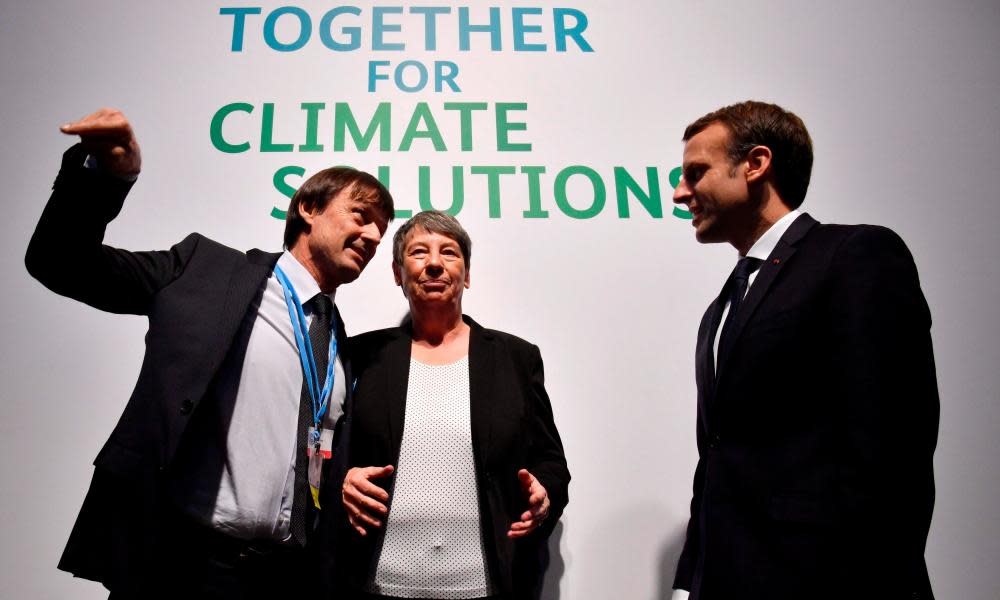The Guardian view on climate talks: Brexit’s heavy weather | Editorial

The tragedy of climate change, as the governor of the Bank of England has put it, is one of the horizon. The catastrophic impacts of altering the atmosphere impose an enormous cost on future generations that the current generation creates but has no incentive to fix. To focus the minds of today’s decision-makers the 2015 Paris agreement sent a clear signal that the era of fossil-fuel-powered growth was coming to an end. The signatories agreed to limit global warming to no more than a two-degree celsius rise, the threshold of safety, beyond which climate change is likely to become irreversible. The real genius of Paris is not that it is rooted in science but its timing and its structure. While the 2C target was binding, the national targets agreed by each nation were not. Those non-binding targets do not add up to a 2C world – they would, if followed to the letter, lead us to a 3C one, unthinkable in terms of the devastation it would cause. So upping them was part of the point of this year’s UN climate meeting in Bonn, which closed on Friday, and will be the main issue at next year’s, and the year after next.
The US under Donald Trump reneged on the deal before this year’s talks began. There is some solace in the fact that Washington cannot formally withdraw until 4 November 2020, the day after the next presidential election. The rest of the world, rightly, is moving on. Given what is at stake, it is worth pausing to consider where – and how quickly – the globe is going. Backwards – if one considers that China will almost single-handedly cause global emissions of carbon dioxide to grow in 2017. Canada and Britain, meanwhile, began a new 19-nation alliance in Bonn aimed at phasing out the use of coal power by 2030. This sounds like an important move until one realises that members of the “powering past coal alliance” account for less than 3% of coal use worldwide. Germany, which is not a member, held the climate talks an hour’s drive from a village that is being demolished to make way for a coalmine. These green talks, which are fundamentally about ethical concerns, are nevertheless becoming more like discussions about trade. In the case of climate change these involve transitions from one way of producing, distributing and consuming energy to another, cleaner way of doing so. It would be good if this could be seen only as a process of mutual support. However, as the talks in Bonn show, they are also hard-nosed negotiations which revolve around the exchange of concessions.
Such bargains can lead – once they are set in national plans – into the toxic politics of globalisation. Domestic politics is central to determining the way people live in a globalised world, and whether they like it. So an environmentally successful policy can end up politically dead if it is seen as unfair to the poor or disproportionately favourable to foreign industry, as happened with the Tory-led coalition’s support for low-carbon power.
If Brexit goes ahead, Britain will nevertheless need to shape a green politics with devolution and social justice at its core. Outside the European Union, Britain will be less able to ensure the Paris agreement is enacted. EU environment laws do not stand alone – the European court of justice polices their implementation. So there is an open question about how British measures to tackle climate change will be overseen. Ministerial self-regulation will not be an adequate substitute. Outside the EU – the world’s most powerful trading bloc – Britain will almost certainly have to obey rules without being able to influence them. Britons will suffer if we cannot fashion electric vehicle markets to suit our car industry, for instance. We are healthier and better off as a result of EU protections, safeguards that could be lost if they become bargaining chips in a future post-Brexit trade deal. In the 1990s Britain was seen as the dirty man of Europe. We are now the continent’s leading decarboniser. The retreat from the EU must not mean that a fairer, greener future disppears from the field of view.

 Yahoo News
Yahoo News 